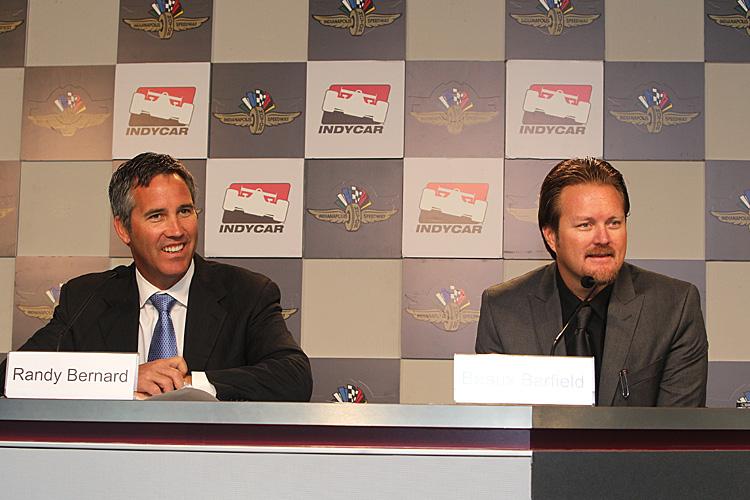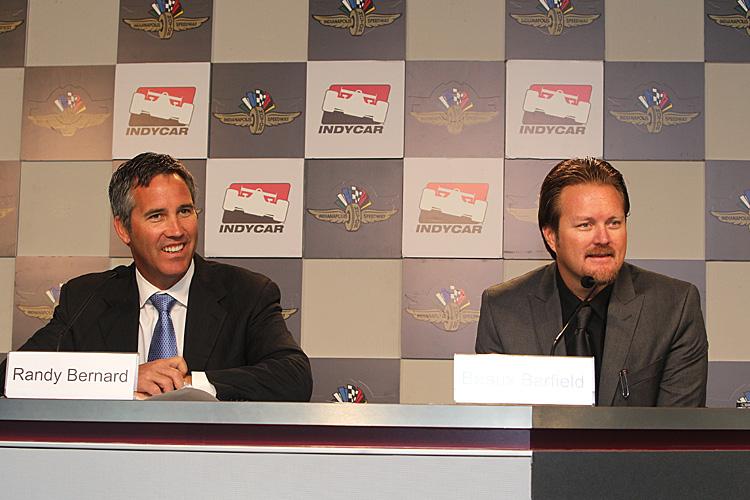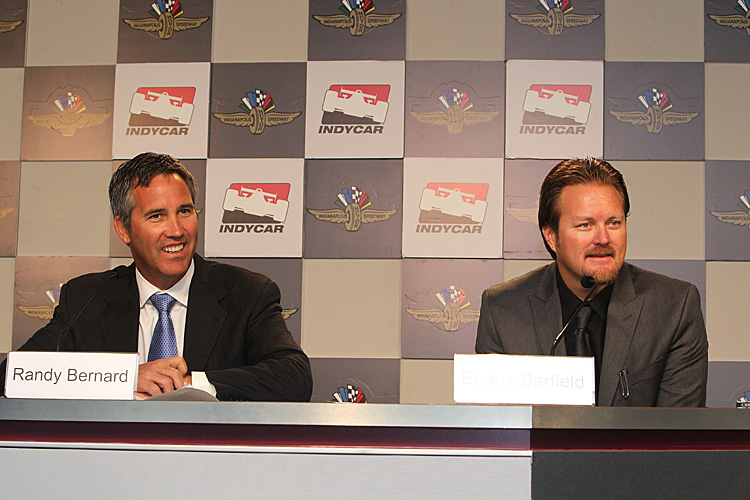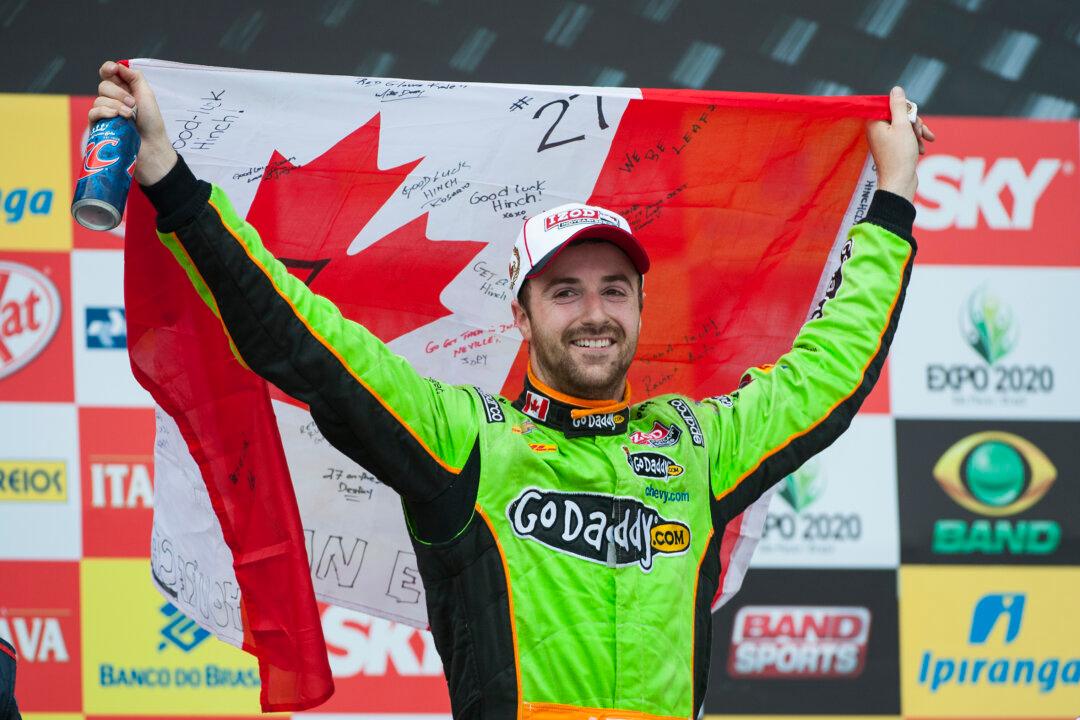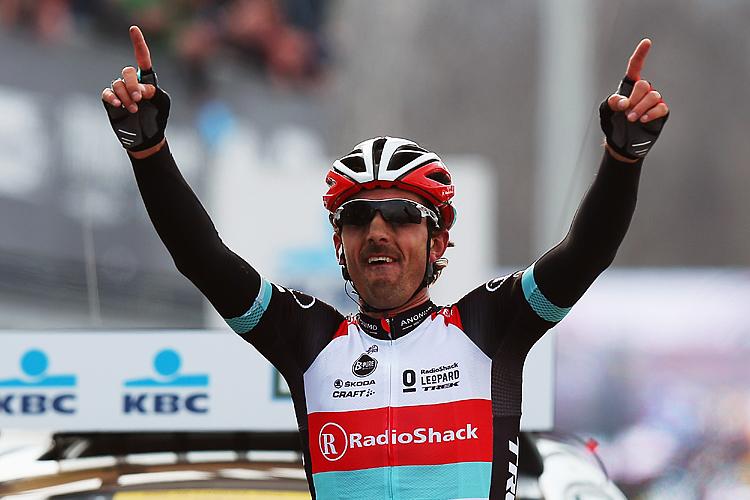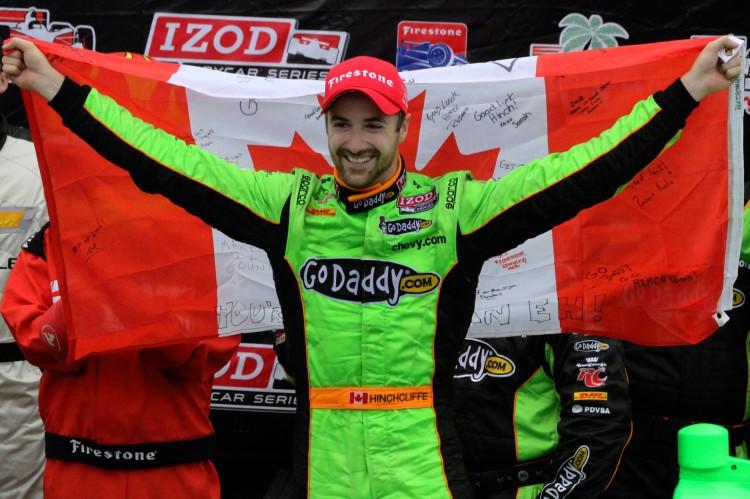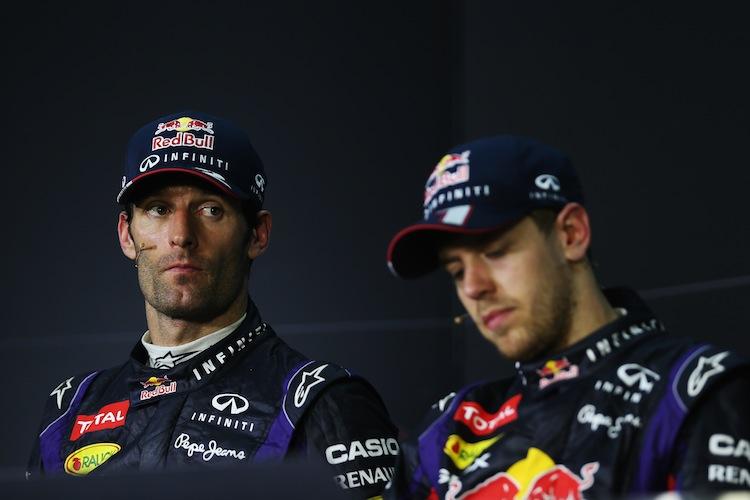IndyCar CEO Randy Bernard announced Wednesday, Jan. 4, that former American Le Mans Series race director Beaux Barfield will be taking over in the control booth for the 2012 IndyCar series.
In a press conference at Indianapolis Motor Speedway, Bernard introduced Barfield, a former Indy Lights driver with experience in race control with Champ Car, Formula Atlantic, Trans Am, and USF 2000.
“I think any American driver looks at the Indy 500. That’s what I grew up dreaming about from a driver’s standpoint, and from an officiating standpoint it really represents the pinnacle of any of my ambitions or aspirations—I am honored to be a part of it,” Barfield said in an interview on Indycar.com.
“It’s been a process that started in September, when we determined that we were going to create a new race director for the 2012 season,” said series CEO Randy Bernard. “After many interviews we determined that Beaux Barfield was our best candidate to take the series to the next level. He’s very articulate, very forward thinking, and very passionate about open-wheel racing.”
As race director, Barfield will be responsible for enforcing rules and penalizing infractions, managing starts and restarts, and making sure that drivers are allowed to race without endangering one another. Assisted by the race steward and the driver coach, Barfield will have the final say on who did what right or wrong, and what will be done about it.
Barfield replaces Brian Barnhart, who held the job for 16 years, but came under fire in the past few seasons for making bad calls, enforcing different penalties for different drivers, and overlooking some penalties when race- or championship leaders were involved.
The situation came to a head when Barnhart elected to restart a race in Loudon, N.H., despite being told conditions were unsafe. The restart resulted in a multi-car wreck, and all the opposition to Barnhart’s decision-making coalesced—team owners, drivers, and fans all began calling for Barnhart’s ouster.
Barfield showed great ability as a race director at ALMS, where he had to oversee fields containing several classes of cars with different performance potential, and the numerous racing incidents which arise from that. Further, he has a strict policy of impartiality as he explained in the interview:
“It’s important to look at an incident or a situation for absolutely its face value. I tend to look at incidents without regard to who’s driving the car, the car number, the color of the car, any of that—you try to look at all of that as black-and-white as possible.
“When people are looking for black-and-white rules I think that allows you to make the right decision.” can be cut here
New Rules Required
Barfield’s first task will be rewriting the IndyCar rulebook to remove gray areas, update the rules to suit current conditions and regulations, and build a framework for the kind of racing he—and hopefully IndyCar fans—find most exciting. Barfield needs to finish all that before the season opener in St. Petersburg on March 27.
Barfield took the job knowing it would be a big challenge. IndyCar is struggling to rebuild the sport and its fan base after 15 years of conflict between competing IndyCar series, which ultimately bankrupted both. Now the series has a new CEO, a new car, three new engine suppliers, and is (hopefully) embarking on a new phase of growth.
Old officials are being replaced or reassigned, and CEO Bernard is trying new approaches to remake traditional IndyCar racing. Barfield realizes the situation he is entering, and relished it.
“The attraction for me coming into this is taking something that obviously requires some fix and some change,” he told the assembled reporters. “To be able to come in with the ability to write rules and really start off from the ground up is a great opportunity.” can be cut here
Blocking
One of the most controversial rules in the IndyCar rulebook is the blocking regulation. Under a rule instituted by Tony Cottman in 2007 in response to the many narrow street courses ChampCar raced on, the track at corners was divided into lanes and drivers were required to stay in those lanes. This prevented drivers from defending their positions, removing one of the most exciting—and demanding—aspects of competition.
The first question from the press brought up blocking, and Barfield answered confidently that he realized blocking would always be a tough call, but he wouldn’t make rules to make it easier if it hurt the racing.
“I can tell you from an officiating standpoint the easy way out, the easy way to call it isn’t the answer,” he replied.
“Ultimately, we have a product to produce. The absolute black-and-white rules that most of us long for aren’t really compatible in real life and in racing. So it requires an official that can communicate and articulate the gray and enforce it accordingly.
“Lines drawn on the track, I’m not a fan of. There will be latitude for drivers to defend their position, but when it gets to the dangerous side, calls will be made. I’ve called plenty of blocking penalties in the last several years.”
Barfield also stressed that he doesn’t shy away from controversy but believes in communication; “I look at drivers and team managers as peers; I treat them as such.
“You move forward at times with relationships that you know are going to be adversarial. You sit down, have conversations that you know are going to be difficult, try to find benefits for everybody involved when you have such a relationship with your people.”
Barfield’s current contract is only for one year, but it seems unlikely that Indycar will not want him to stay longer. Based on Barfield’s tenure in ALMS, IndyCar has found the right man to move the series forward and ensure exciting racing in 2012 and beyond.
